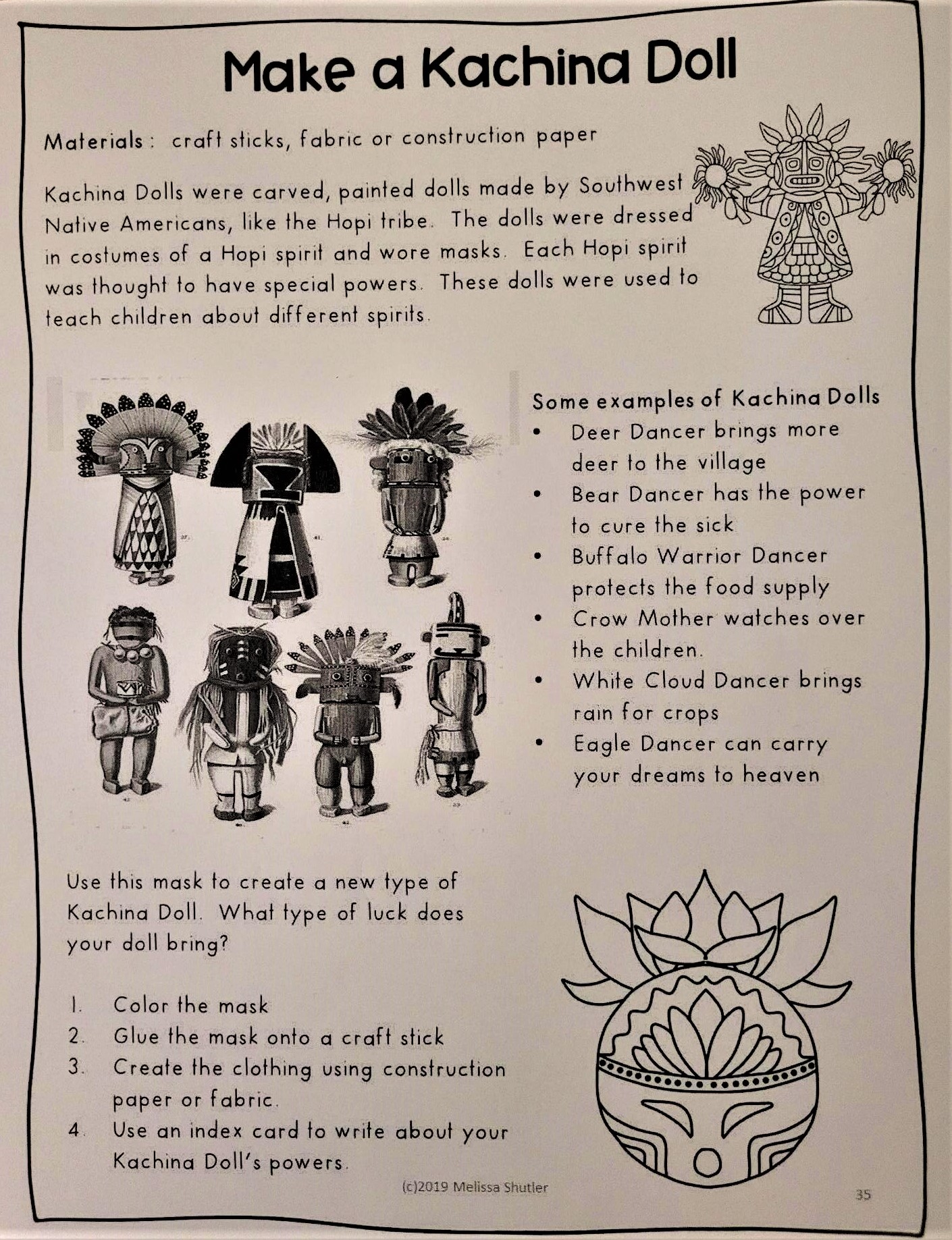Student Forced To Make Idol and Participate in Pagan Ritual in Class
We were recently contacted by a parent whose child was forced to make an idol and participate in a pagan ritual in his class.
Earlier this year, a fifth-grade social studies teacher instructed students to make a kachina doll during school hours in a Lexington, Ohio, public school. A kachina doll is a religious doll that Southwest Native Americans carve and paint to teach their kids about different Hopi spirits. They believe each spirit has special powers, such as providing food and water for the community, healing the sick, offering individual protection, and carrying dreams to heaven. The students were instructed to make the dolls in class, name them, and then describe their special spiritual powers. We’re talking about 10 and 11-year-olds being forced to make idols in class.
In fact, “the lesson plan states, ‘These dolls were used in ceremonies to teach children about the beliefs of the tribe and the gods.’”
Our client, Benjamin Mutti, didn’t find out about their son’s class assignment until a month later. Of course, Mr. Mutti and his wife were very concerned, believing the assignment to be in direct violation of their Messianic Jewish beliefs as well as the Second Commandment: “You shall not make for yourself a carved image, or any likeness of anything that is in heaven above, or that is in the earth beneath, or that is in the water under the earth” (Exodus 20:4). No Christian should ever be forced to participate in idol worship in a public school.
Since the incident had already occurred without parental consent or notification, our client couldn’t choose to opt their son out of the assignment. They decided to approach the school board with their concerns and contacted the ACLJ for help. We not only provided them with our relevant white papers from our Know Your Rights article on religious liberty in public schools but also sent an informational letter to the school outlining the constitutional violations.
The letter explained how, almost 100 years ago, the Supreme Court ruled that “parents have a fundamental liberty interest under the Fourteenth Amendment in the care, upbringing, control, and education of their children.” The government is not the sole decision-maker in caring for children and determining what they learn. Rather, parents are to have a clear input into the nurture and education of their children.
Parents being the primary source of care and education is not just a 20th-century American ideal. Our letter pointed out: “The history and culture of Western civilization reflect a strong tradition of parental concern for the nurture and upbringing of their children. This primary role of the parents in the upbringing of their children is now established beyond debate as an enduring American tradition.” In other words, parents have been the primary source of care and education for their children since the dawn of Western civilization, dating back to ancient Greece.
Our letter also points out the clear constitutional violation at issue here:
While a school’s choice of curriculum does not violate parental rights despite parental objections if the curriculum is reasonably related to a legitimate educational purpose, Herndon v. Chapel Hill-Carrboro City Bd. of Educ., 89 F.3d 174 (4th Cir. 1996) (mandatory community service for students held not to violate parental rights as the program was reasonably related to legitimate state educational purposes) . . . , the Supreme Court consistently has held that students do not “shed their constitutional rights to freedom of speech or expression at the schoolhouse gate.” Tinker v. Des Moines Indep. Cmty. Sch. Dist., 393 U.S. 503, 506 (1969). It is well settled that religious speech is protected by the First Amendment of the Constitution, even when that speech is taking place on the public school campus. Widmar v. Vincent, 454 U.S. 263, 269 (1981) (citing Heffron v. Int.’l Soc’y for Krishna Consciousness, Inc., 452 U.S. 640 (1981)). Supreme Court “precedent establishes that private religious speech, far from being a First Amendment orphan, is as fully protected under the Free Speech Clause as secular private expression.” Capitol Square Review & Advisory Bd. v. Pinette, 515 U.S. 753, 760 (1995).
Thus, where students are coerced, however, into verbally affirming the truth of something that violates the student’s religious convictions, a First Amendment claim may be successful. For example, in Wood v. Bd. of Educ., No. GJH-16-00239, 2016 U.S. Dist. LEXIS 136512 (D. Md. Sep. 30, 2016), the court held that the Plaintiff stated a First Amendment claim where she alleged that the school required her daughter to profess the five pillars of Islam and to write out faith statements of the religion.
The school board has now been put on notice, but this assault on the First Amendment rights of students is growing worse by the day.
The radical Left seeks to undermine religious liberty in schools. The ACLJ has fought and won cases involving public schools taking children’s Bibles, cross necklaces, and other Christian symbols. The Left wants a complete separation of church and state. But apparently, religious symbols for Native American religions are still permissible in school.
Yet the Constitution protects children’s First Amendment rights in public schools and prohibits the state from violating children’s religious conscience.
Armed with an objective and a true understanding of the applicable law, our clients were able to speak to the Lexington School Board about what they didn’t want their child taught in the classroom. No child should be forced to build an idol and partake in a pagan ritual. We will continue fighting to ensure that this never happens again.
The Constitution protects the rights of all Americans, whether they are Christians, Jewish, Muslim, or adherents to other religions. Teaching religious practices is the primary charge of the parents – not a government-run public school.

